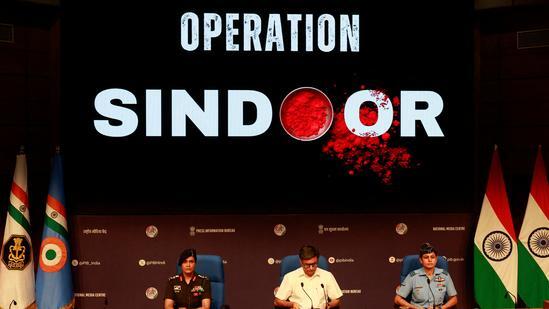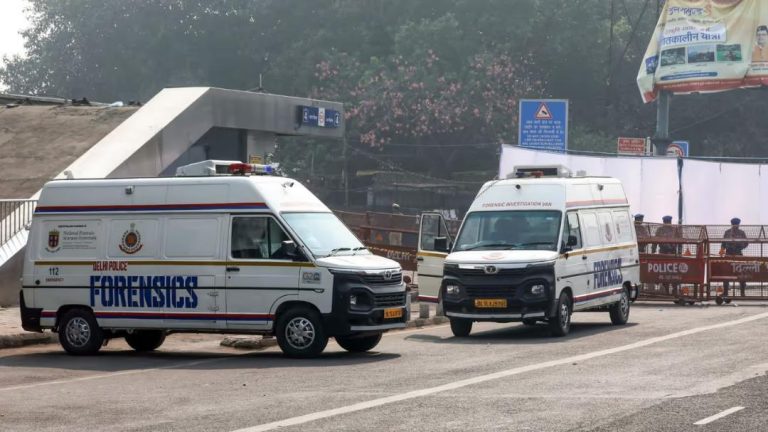
Lost Planes in Op Sindoor due to Political Leadership’s Constraint: Says Indian Envoy, Govt Clarifies
The recent remarks made by Captain Shiv Kumar, the Defence Attaché to the Indian Embassy in Indonesia, have sparked a controversy over India’s military operations during the 1971 war with Pakistan. Captain Kumar’s statement, which was widely reported in the media, has led to a clarification from the Indian government. In this blog post, we will delve into the details of the issue and explore the implications of Captain Kumar’s remarks.
According to reports, Captain Kumar said that India lost aircraft “only because of political leadership’s constraint to not attack Pak military establishments” during Operation Sindoor. The operation was launched by the Indian Air Force (IAF) in December 1971, with the aim of weakening Pakistan’s military capabilities and creating a conducive environment for the liberation of Bangladesh.
However, Captain Kumar’s statement has been met with skepticism by many, who question the accuracy of his claims. The Indian government has also issued a clarification, stating that Captain Kumar’s remarks were “quoted out of context”. But what exactly did Captain Kumar mean by his statement, and what are the implications of his remarks for India’s military history?
To understand Captain Kumar’s statement, it is essential to place it in the context of the 1971 war. The war was fought between India and Pakistan over the issue of Bangladesh’s independence, which was then East Pakistan. The war was marked by intense fighting on the ground, and the IAF played a crucial role in weakening Pakistan’s air force.
According to Captain Kumar, India lost aircraft during the war due to the political leadership’s constraint to not attack Pakistani military establishments. This statement suggests that India’s military operations were constrained by political considerations, which prevented the IAF from targeting Pakistan’s military assets.
However, many experts have questioned the accuracy of Captain Kumar’s statement. They point out that the IAF was instructed to target Pakistan’s military assets, including airfields, radar stations, and supply lines, in order to weaken Pakistan’s military capabilities.
Furthermore, the IAF’s performance during the war was impressive, with the air force destroying over 80% of Pakistan’s air force and crippling its air defenses. The IAF also played a key role in supporting the ground troops, helping to secure key victories on the battlefield.
Despite these achievements, Captain Kumar’s statement has sparked a controversy over the constraints under which the IAF operated during the war. The statement has led to questions about the extent to which political considerations influenced India’s military strategy during the war.
In response to Captain Kumar’s statement, the Indian government has issued a clarification, stating that his remarks were “quoted out of context”. The clarification does not provide any further details about Captain Kumar’s statement, but it implies that his remarks were taken out of context and do not accurately reflect the events of the war.
The controversy surrounding Captain Kumar’s statement highlights the complex relationship between politics and military strategy. While the military must operate within the constraints set by political leaders, the military’s effectiveness is often dependent on the strategic decisions made by political leaders.
In the case of the 1971 war, the Indian government’s decision to limit the IAF’s targets may have been motivated by a desire to avoid provoking Pakistan and to focus on the liberation of Bangladesh. However, this decision may have also limited the IAF’s ability to achieve its full potential and to inflict greater damage on Pakistan’s military.
In conclusion, Captain Shiv Kumar’s statement about the 1971 war has sparked a controversy over the constraints under which the IAF operated during the war. While the statement has been met with skepticism by many, it highlights the complex relationship between politics and military strategy.
As the Indian government clarifies the situation, it is essential to remember that the 1971 war was a pivotal moment in India’s military history. The war marked a significant turning point in India’s relationship with Pakistan and had far-reaching implications for regional security.
Sources:






